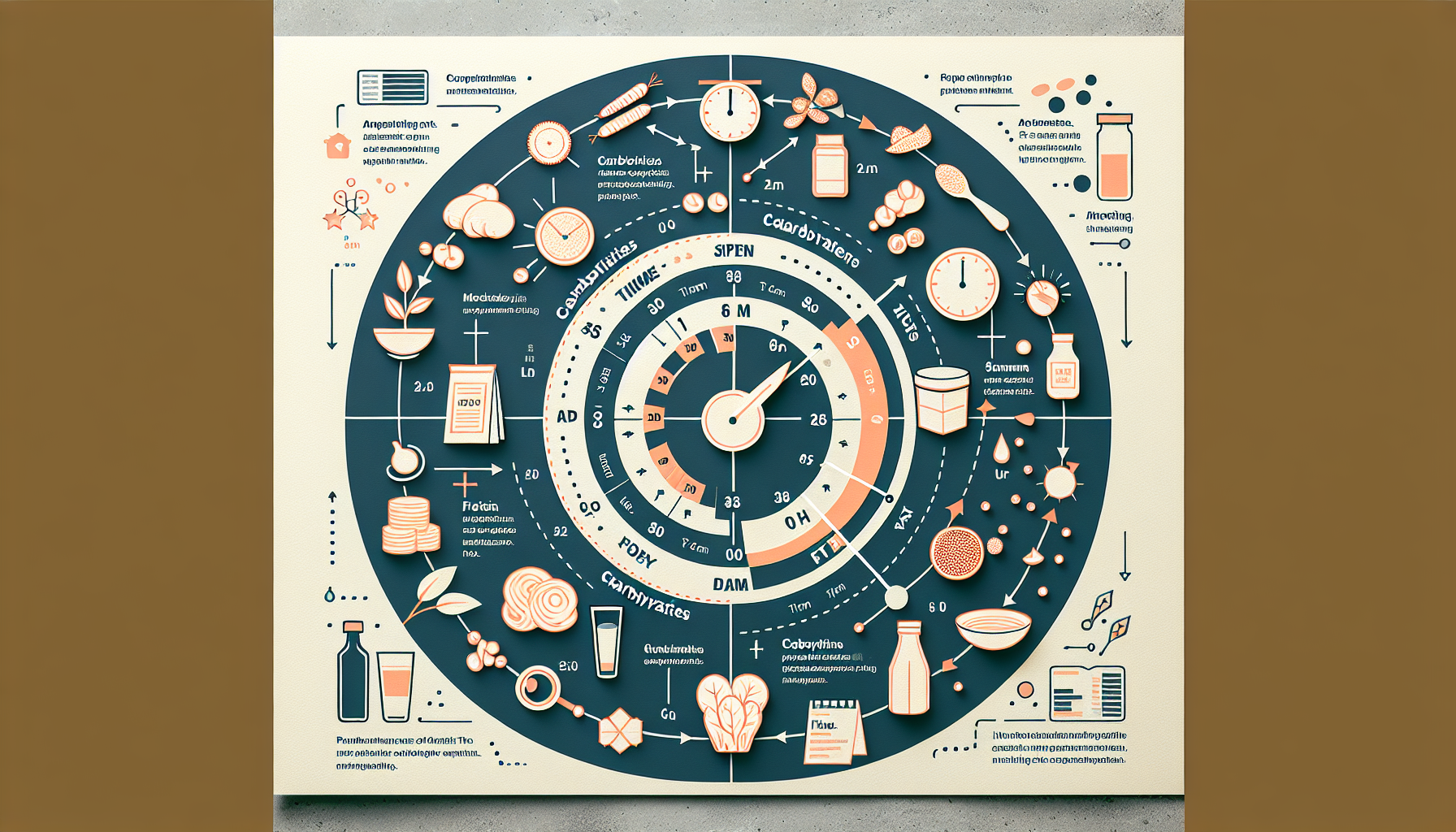Nutrient timing is a dietary concept that refers to the timing of food and supplement intake in relation to physical activity and bodily needs. It’s a strategy used to optimize health, improve performance, and achieve specific fitness goals. This strategy can be particularly beneficial for athletes or individuals looking to enhance their exercise outcomes, but it also offers advantages for people seeking to manage their weight, optimize their health, or address specific health concerns.
The Importance of Nutrient Timing
The body’s metabolic processes are influenced by the circadian rhythm, which means that the body’s need for nutrients varies throughout the day. For instance, the intake of carbohydrates and protein post-exercise can enhance muscle recovery and growth by increasing muscle protein synthesis and replenishing glycogen stores. Likewise, consuming certain nutrients at specific times can impact cardiovascular health, influencing factors such as blood pressure, cholesterol levels, and overall heart function.
Synergizing Nutrient Intake with Daily Activities
Aligning nutrient intake with daily activities is not just for athletes. For those with busy lifestyles, understanding when to consume certain foods or supplements can help maintain energy levels, improve cognitive function, and manage stress. For example, a breakfast rich in protein and complex carbohydrates can provide sustained energy throughout the morning, while a dinner with lean protein and vegetables can promote satiety and support overnight muscle repair.
Nutrient Timing and Digestive Health
Digestion also plays a role in nutrient timing. Consuming a heavy meal right before bed can lead to discomfort and disrupt sleep, while spacing out meals and snacks can support better digestive health. Probiotics, either in foods like yogurt or as supplements, can be timed to support gut health throughout the day.
Nutrient Timing for Weight Management
Weight management is another area where nutrient timing can be particularly effective. Consuming a protein-rich snack between meals can help control appetite and reduce overall caloric intake. Additionally, timing carbohydrate intake around physical activity can help with glycogen replenishment and prevent excess storage of carbs as fat.
Maximizing the Benefits of Supplements
When it comes to supplements, timing can be crucial. For instance, fat-soluble vitamins like vitamin D are best taken with a meal that contains fat for optimal absorption. Likewise, choosing the right herbal supplements for your health concerns can be more effective when timed correctly, such as taking calming herbs like chamomile in the evening to aid sleep.
Nutrient Timing and Personalized Medicine
Personalized medicine is an evolving field that tailors healthcare to individual characteristics, behaviors, and preferences. Nutrient timing fits into this paradigm by allowing individuals to customize their diet and supplement intake based on their unique needs and daily rhythms. Learning about advances in personalized medicine can provide insights into how to adjust nutrient timing for optimal health outcomes.
Nutrient Timing in Special Populations
Special populations, such as pregnant women, the elderly, and those with chronic conditions, can benefit from specific nutrient timing strategies. For instance, prenatal vitamins and supplements are most beneficial when taken at a time that maximizes absorption and aligns with the body’s increased nutritional demands during pregnancy.
External Resources on Nutrient Timing
For those looking to delve deeper into the science and application of nutrient timing, there are numerous niche resources available:
- International Society of Sports Nutrition Position Stand: Offers an in-depth analysis of nutrient timing and its effects on sports performance and muscle hypertrophy.
- American Council on Exercise: Provides resources on exercise science, including the role of nutrient timing in fitness and health.
- Academy of Nutrition and Dietetics: Features a variety of articles and guidelines on nutrition, including optimal timing for nutrient intake.
- Precision Nutrition: Offers a comprehensive guide on nutrient timing and how it relates to exercise and daily life.
By exploring these resources, individuals can gain a better understanding of how to effectively implement nutrient timing strategies into their daily routine.
Bringing It All Together
Nutrient timing is more than just a concept for athletes—it’s a strategy that can be applied by anyone looking to enhance their health and well-being. By understanding the body’s rhythms and aligning food and supplement intake accordingly, it’s possible to optimize nutrient absorption, improve health outcomes, and support overall wellness.
Incorporating nutrient timing into one’s lifestyle requires an understanding of one’s own health needs and daily patterns. By making informed choices about when to consume specific nutrients and supplements, individuals can take an active role in their health and achieve their wellness goals more effectively. Whether it’s for fitness, weight management, or disease prevention, nutrient timing is a valuable tool in the nutrition arsenal.



